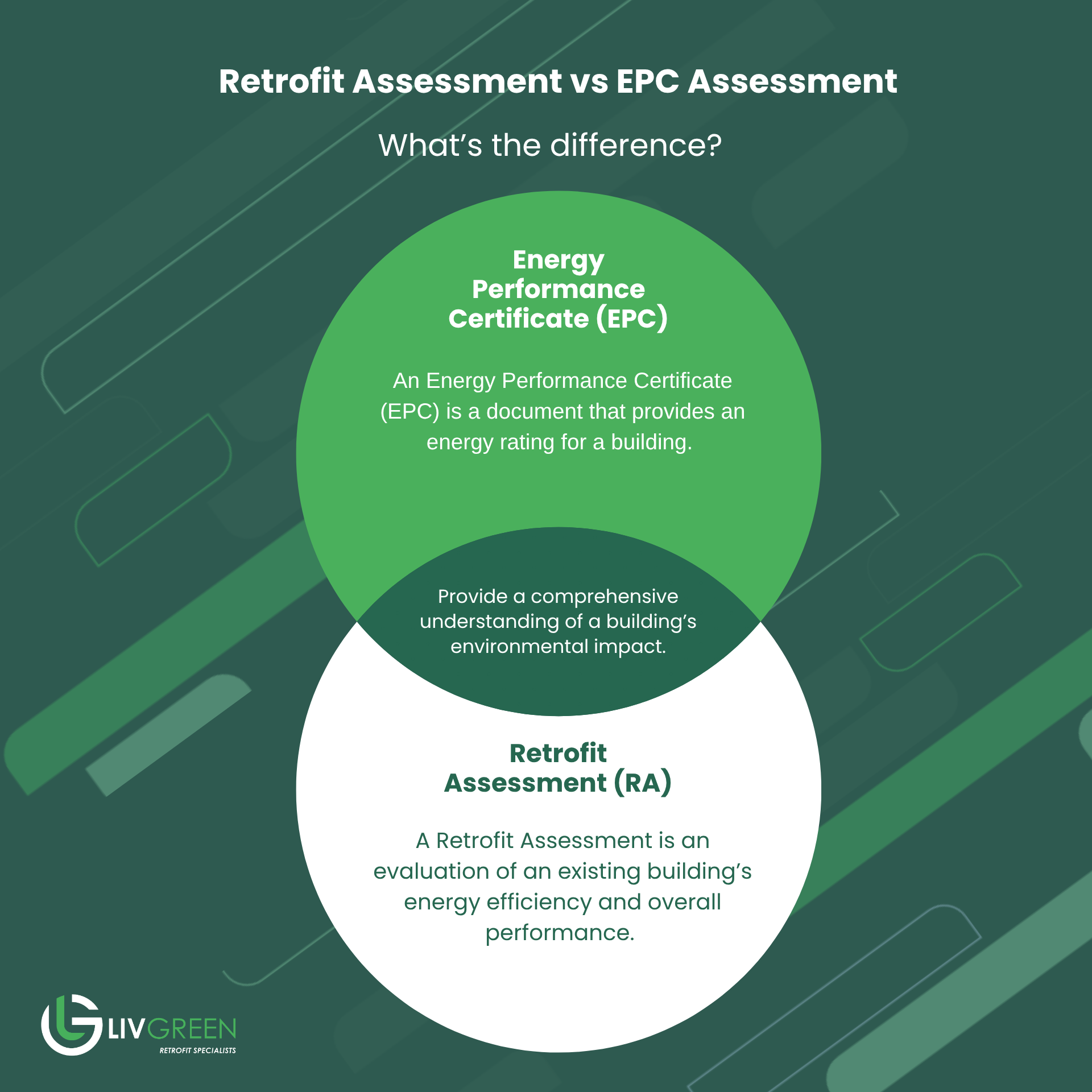
Understanding Retrofit and Energy Performance Certificate (EPC) assessments, what’s the difference, and why are they important?
Retrofit assessments and Energy Performance Certificates are crucial steps within your Retrofit journey.
What is a Retrofit Assessment?
A Retrofit Assessment is a detailed evaluation of an existing building’s energy efficiency performance. It focuses on identifying areas where energy-saving improvements can be made within the property, bringing the building up to modern standards, reducing environmental impact and most of all, saving money on your energy bills.
Retrofit assessments involve a thorough inspection of a building’s structure, insulation, heating systems, lighting, and other elements that contribute to its energy use. Experts often use tools like thermal imaging cameras and airflow tests to detect issues such as heat loss, drafts, or inefficiencies in the building’s systems.
What is an Energy Performance Certificate (EPC) Assessment?
n Energy Performance Certificate (EPC) is a document that provides an energy rating for a building. EPC assessments are carried out by accredited assessors, who evaluate a building’s energy efficiency and its environmental impact. The EPC scale ranges from A (most efficient) to G (least efficient), and it includes recommendations on how to improve energy efficiency.
EPC assessments take into account several factors, including insulation levels, the efficiency of heating and hot water systems, and the type of lighting and appliances used. The certificate is a valuable tool for homeowners, landlords, and prospective buyers or tenants to understand the energy performance of a building.
The Benefits - Retrofit Assessment
Improved Energy Efficiency: By identifying energy loss, a retrofit assessment allows us to install targeted improvement measures such as solar panels, heat pumps and/or cavity wall insulation, that can drastically lower energy consumption and reduce bills.
Increased Property Value: Homes and buildings with better energy performance are more attractive to buyers or tenants, making them more valuable on the market.
Enhanced Comfort: Insulation and improved heating systems can make your home more comfortable by maintaining a consistent temperature throughout the year.
Environmental Impact: Reducing energy use contributes to lowering your carbon footprint, which helps in meeting government targets for carbon reduction and tackling climate change.
The Benefits - EPC Assessment
Energy Efficiency Rating: The EPC provides a clear and easily understandable rating, enabling us to assess the energy performance of your property.
Cost Savings: The recommendations from an EPC can help reduce energy consumption, leading to lower energy bills and more cost-effective home ownership or management.
Market Appeal: Properties with a higher EPC rating are often seen as more desirable.
Legal Requirements: For landlords, obtaining an EPC is a legal requirement before renting out a property. The Minimum Energy Efficiency Standards (MEES) mandate that properties must have a minimum EPC rating of E in England and Wales.
Why are these assessments important?
Both assessments play a crucial role within the retrofit journey, contributing to the evaluation of housing stock when looking to improve energy performance.
Without these assessments, we will not be able to identify areas of improvement, offer practical solutions to energy efficiency, or provide a comprehensive understanding of a building's environmental impact.


Leave Your Comment Here